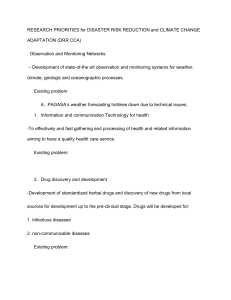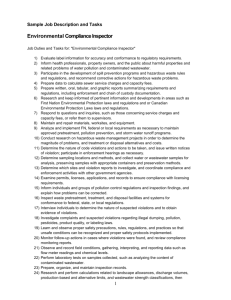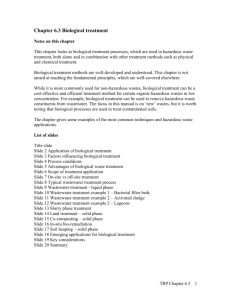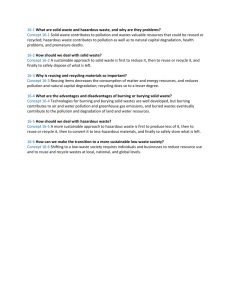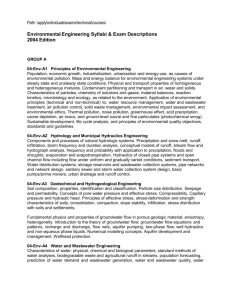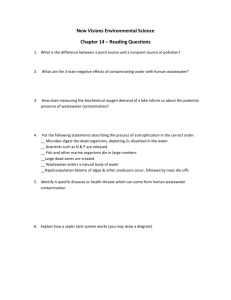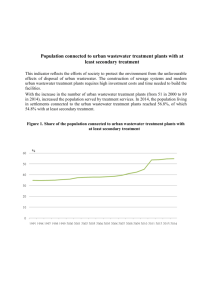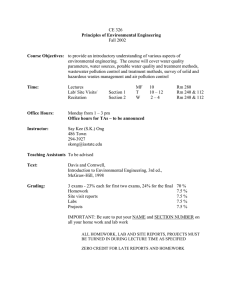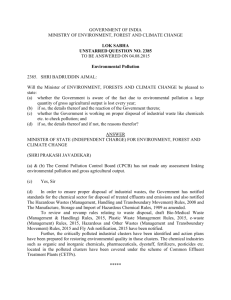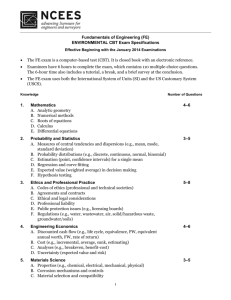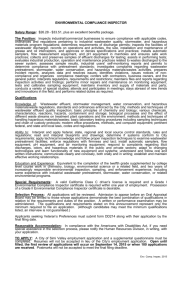Word - IPFW
advertisement
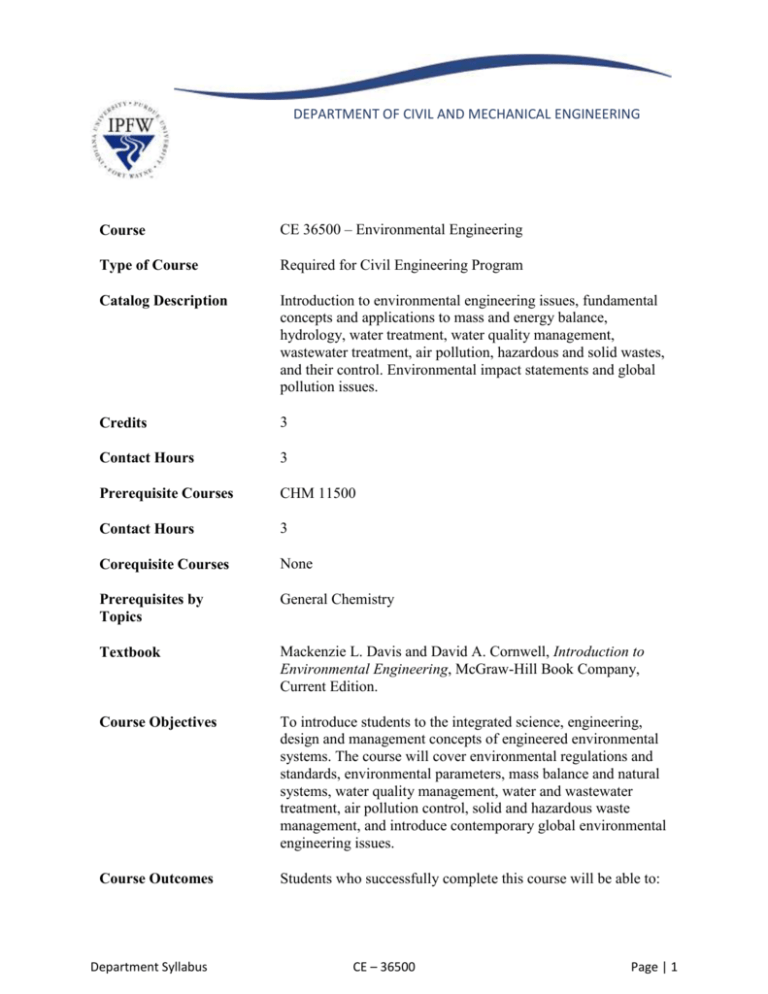
DEPARTMENT OF CIVIL AND MECHANICAL ENGINEERING Course CE 36500 – Environmental Engineering Type of Course Required for Civil Engineering Program Catalog Description Introduction to environmental engineering issues, fundamental concepts and applications to mass and energy balance, hydrology, water treatment, water quality management, wastewater treatment, air pollution, hazardous and solid wastes, and their control. Environmental impact statements and global pollution issues. Credits 3 Contact Hours 3 Prerequisite Courses CHM 11500 Contact Hours 3 Corequisite Courses None Prerequisites by Topics General Chemistry Textbook Mackenzie L. Davis and David A. Cornwell, Introduction to Environmental Engineering, McGraw-Hill Book Company, Current Edition. Course Objectives To introduce students to the integrated science, engineering, design and management concepts of engineered environmental systems. The course will cover environmental regulations and standards, environmental parameters, mass balance and natural systems, water quality management, water and wastewater treatment, air pollution control, solid and hazardous waste management, and introduce contemporary global environmental engineering issues. Course Outcomes Students who successfully complete this course will be able to: Department Syllabus CE – 36500 Page | 1 1. Understand how Federal/State environmental regulations and standards are developed as well as their impact. [f, h, i, j] 2. Balance chemical reactions and use balanced reactions to determine the distribution of species at equilibrium. [a] 3. Develop a mass balance expression for contaminants under different case scenarios and design a simple system to meet desired needs. [a, c, e] 4. Learn how to characterize source water, and the best available technologies (BAT) for physical and chemical treatment of drinking water. [a, c, e, i, j, k] 5. Learn how to characterize wastewater, and the BAT for physical, chemical and biological treatment of wastewater. [a, c, e, i, j, k] 6. Determine common air pollutants, and their pathways, and the various technologies available for control. [a, c, e, i, j, k] 7. Learn the regulatory definitions of solid and hazardous wastes, and the methods used to characterize, handle wastes from their source to their final ultimate disposal or reuse. [a, c, e, i, j] 8. Understand selected contemporary global environmental issues such as global warming, stratospheric ozone, and emerging contaminants. [h, j] Lecture Topics 1. Introduction - Fundamental Concepts and Overview 2. Mass and Energy Balances 3. Hyrology and Hydrologic Cycle 4. Water Treatment 5. Water Quality Management 6. Wastewater Treatment 7. Introduction to Air Pollution 8. Solid Waste Management 9. Hazardous Waste Management 10. Selected Contemporary Environmental Issues Computer Usage Low Laboratory Experience Low Design Experience High Coordinator Dong Chen, Ph.D., P.E. Date 1 October 2015 Department Syllabus CE – 36500 Page | 2 Department Syllabus CE - 36500 Page | 3
